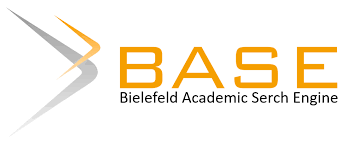HUBUNGAN PRAKTIK SUPPLY CHAIN MANAGEMENT (SCM) DAN KNOWLEDGE MANAGEMENT (KM) TERHADAP KINERJA ORGANISASI (Studi Literatur)
(1) Fakultas Ekonomi Universitas Islam Kalimantan Muhammad Arsyad Al Banjari
(2) Fakultas Ekonomi Universitas Islam Kalimantan Muhammad Arsyad Al Banjari
(3) Fakultas Ekonomi Universitas Islam Kalimantan Muhammad Arsyad Al Banjari
(4) Fakultas Ekonomi Universitas Islam Kalimantan Muhammad Arsyad Al Banjari
(*) Corresponding Author
Sari
Kata Kunci
Teks Lengkap:
PDFReferensi
Anatan,Lia., (2010), Pengaruh Implementasi Praktik–Praktik Manajemen Rantai Pasokan Terhadap Kinerja Rantai Pasok dan Keunggulan Kompetitif, Karisma Vol.4 (2): 106-117,2010. Basuki, T Armanu, S and Achmad, 2013, The Role of Strategic Human Resource Management Practice Mediated by Knowledge Management on Service Quality (Study on the Public and Private Hospitals In South Kalimantan, IOSR Journal of Business and Management (IOSR-JBM) 11 (Issue 2), 58-71. Basuki, R Widyanti, I Rajiani, 2021, Nascent entrepreneurs of millennial generations in the emerging market of Indonesia, Entrepreneurial Business and Economics Review 9 (2), 151-165. Basuki, I Rajiani, R Widyanti, 2021, Boosting Sustainability Performance Through Supply Chain Quality Management In The Mining Industry, Polish Journal of Management Studies 24 (2), 41-54
Basuki, Widyanti Rahmi, M Mursanto, 2021, Kapasitas Knowledge Management Untuk Meningkatkan Kerjasama Dan Inovasi Dalam Perusahaan (Suatu Tinjauan Teoritis), AL-ULUM: Jurnal Ilmu Sosial dan Humaniora 7 (2) Hanna, M. D. and W. R. Newman. (2011), Operations Management: AnIntegrated Approach. Prentice Hall, Inc., New Jersey. Heizer,J. & B. Render. (2015), Manajemen Operasi. Buku Kesatu. Edisi Kesembilan. Jakarta : Salemba Empat. Hertz, Harry S. 2012. Malcolm Baldrige Criteria for Performance Excellence2012. IQAF: Jakarta. Hitt, Michael A. R, Duane ireland. And Robert. E Hekisson. (2011), Manajemen Strategis. Buku Kesatu. Edisi Keempat. Jakarta: Salemba Empat. Indrajit, R.E dan R. Djokopranoto. (2012), Konsep Manajemen supply Chain. PT Grasindo, Jakarta. Indrianto, Nur. & Supomo, bambang. (2012), Metode Penelitian Bisnis Untuk Akuntansi dan Manajemen. Edisi Pertama. BPFE. Yogyakarta. Irmawati, (2012). Pengaruh Manajemen Rantai Pasokan Terhadap Kinerja Di PTPN VIII Gunung Mas Bogor, Program Studi S-1, Institut Pertanian Bogor. Kim, S. W. (2011), “Effect of supply chain management practices, integration, and competition capability on performance”,Supply chain management : An International Journal, Vol.11 No. 3, pp 241-248. Kim, S. W. (2011), “The effect of supply chain integration on the alignment between corporate competitive capability and supply chain operational capability”, International Journal of Operation &Production Management,Vol. 26 No. 10, pp 1084-1107. Li, S., Nathan, R.T.S., Rao, S.S., (2011), The Impact Of Supply chain management Practices On Competitive Advantage And Organizational Performance : Omega 34 107 – 124. Mahendradata, gading. (2010), Strategi Kompetitif, wordpress.com. Mulyadi.(2011). Balanced Scorecard: Alat Manajemen Kontemporer untuk Pelipat ganda Kinerja Keuangan Perusahaan. Salemba Empat, Jakarta. Nahmias, S. (2015), Production and Operations Analysis (Fifth Edition). McGraw Hill, New York. Pujawan, I. N. (2015), Supply Chain Management. Gunawidya, Surabaya.
Ramanda, Irfan; Widyanti, Rahmi; Basuki; 2021, Pengaruh Rasio Likuiditas, Solvabilitas, Aktivitas Dan Profitabilitas Terhadap Kinerja Keuangan Perusahaan Telekomunikasi Yang Terdaftar Di Bursa Efek Indonesia (Bei) Periode Tahun 2016-2020, Al Ulum Jurnal Ilmu Sosial Dan Humaniora, Volume 8, No. 1, 45-54. Rizzoni,A. (2010), Technological Innovation and Small Firm Taxonomy,International Small Business Journal, 9,3, pp. 31-42. Said, A. I. dkk. (2012), Produktivitas dan Efisiensi dengan Supply Chain Management. Penerbit PPM, Jakarta. Simchi-Levi, D. Philip K. and Edith S.L.( 2011). Designing and Managing The Supply Chain Concepts, Strategies, and Case Studies. Irwin McGraw-Hill,Singapore. Soepiadhy. S., Wiguna, I Putu, A., Wulandari S. P.,(2011). Pengaruh Rantai Pasok terhadap Kinerja Kontraktor Bangunan Gedung di Jember, Prosiding Seminar Nasional Aplikasi Teknologi Prasaran Wilayah, Juli 2011, Fakultas Teknik Sipil ITS, Surabaya. Tambunan,T.H. Tulus (2012), Usaha Kecil dan Menengah di Indonesia, Beberapa Isu Penting, Penerbit Salemba Empat, Jakarta. Umar,Husein. (2015), Metode Penelitian, Edisi 7, Penerbit Raja Grafindo Persada, Jakarta.
Widyanti, Rahmi, 2020, Perilaku Organisasi: Teori dan Konsep, Penerbit Media Sains Indonesia, Bandung,
Wu, H., Chen, J., & Jiao, H. 2016., Dynamic capabilities as a mediator linking international diversification and innovation performance of firms in an emerging economy. Journal of
Business Research, 69(8), 2678–2686. Yuwono, S., dkk. (2012). Petunjuk Praktis Penyusunan Balanced Scorecard:Menuju Organisasi yang Befokus pada Strategi. Gramedia Pustaka Utama,Jakarta.
DOI: http://dx.doi.org/10.31602/alsh.v9i1.10986
Refbacks
- Saat ini tidak ada refbacks.
Al-Ulum : Jurnal Ilmu Sosial dan Humaniora by https://ojs.uniska-bjm.ac.id/index.php/ALSH is licensed under is licensed under a Creative Commons Attribution-ShareAlike 4.0 International License.












